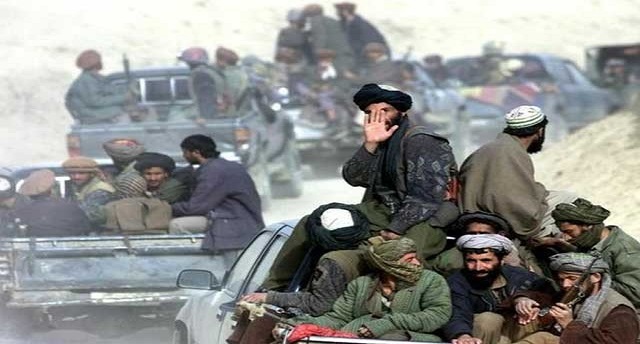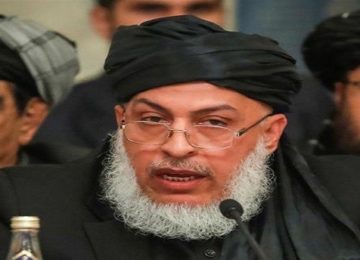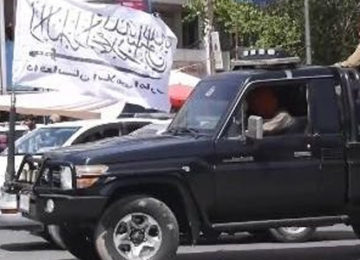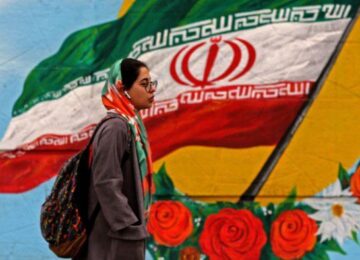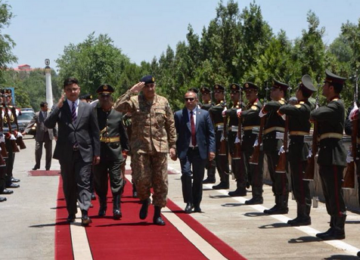November 10, 2017
Pakistan Thursday asked the United States and Afghanistan to focus on massive ungoverned areas that were serving as safe havens for terrorists.
Addressing a weekly news briefing here, Foreign Office Spokesperson Dr Mohammed Faisal said the US and Afghanistan should address Pakistan’s concerns of expanding ungoverned spaces inside Afghanistan and the sanctuaries that are being used to launch terrorist attacks inside Pakistan.
He said in line with the national resolve to rid the country of terrorism, Pakistan had undertaken comprehensive and successful counter-terrorism operations in the last four years.
He said the results of operations Zarb-e-Azb and Khyber IV were before everyone to see which cleared North Waziristan and Khyber agencies of terrorist networks of all shades and denominations.
“Operation Raddul Fasad is an ongoing effort to eliminate terrorists, anywhere in the country. Extremist ideology has permeated societies all over the world and requires efforts at the international scale,” he added.
The spokesperson said they reject baseless allegations of bases inside Pakistan. “There are no organised bases of any terrorist organisation anywhere in the country. Such fallacious assertions are counter-productive and detrimental. More than 45 per cent of the Afghan territory is ungoverned and uncontrolled. Taliban operate from these areas affecting not only Afghanistan but Pakistan. It is in this area that NATO should focus to ensure end to violence and terrorism in the region,” Faisal said.
On the issue of troops’ surge in Afghanistan , he said: “We have previously made many statements on this issue. Pakistan believes that there is no military solution to the Afghan conflict, and a political solution is imperative for lasting peace and stability. It is very important for Afghanistan to be at peace with itself and its neighbours.”
On Nayyar Iqbal Rana’s assassination in Afghanistan , the spokesperson said Pakistan had forcefully taken up the case with Afghanistan of the slain diplomatic official. He said Afghan President Ashraf Ghani had called Prime Minister Shahid Khaqan Abbasi and discussed cooperation in the fight against terrorism.
Faisal said Pakistan was aware of the nexus between the Research and Analysis Wing and terrorist networks in Afghanistan including the Tehreek-e-Taliban Pakistan, the Jamaatul Ahrar and other terrorist organisations.
“They have been involved in subversive activities inside Pakistan and also working against the national interest of Pakistan in Afghanistan . We will not allow the anti-Pak elements in Afghanistan to succeed,” he said.
Regarding NATO Secretary General Jens Stoltenberg’s statement that Pakistan had made unmatched sacrifices, both in blood and treasure in fighting terrorism, he said: “No country has done more than Pakistan, or suffered more than Pakistan in combating the menace of terrorism.”
Asked about India’s plan to build a new airbase in Gujrat near Pakistani border, to fight a ‘short and swift war’ against Pakistan, Faisal said statements by the Indian military leadership had exposed the existence of the Cold Start doctrine, which only validates what Pakistan has known all along regarding India’s aggressive designs.
“Military doctrines, such as Cold Start and Pro-Active Strategy, envision limited war below the nuclear threshold. The report about Gujrat provides credibility to the fact that India is fast developing the infrastructure and force configurations to operationalise these military doctrines. Subscribing to such offensive doctrines in a nuclearised region exposes irresponsible behaviour,” he added.
The spokesperson said it will better serve the interests of both countries to engage in a meaningful dialogue aimed at agreeing on measures of restraint and military doctrines which were defensive in nature rather than seeking to create space for war. “India should respond positively to Pakistan’s proposal for a Strategic Restraint Regime that can serve as the basis for enduring peace and stability in the region,” he said adding: “Our armed forces are fully prepared to defend Pakistan against any threat.”
To a question, he said Kashmir dispute was one of the oldest pending disputes. “Pakistan has consistently stressed the need for its expedited resolution not only for India and Pakistan but peace and tranquillity of the whole region. We have repeatedly raised this issue with the US officials at all levels. Pakistan has also shared dossiers of systematic human rights violations in Indian occupied Kashmir with US side,” he said.
This article originally appeared in The Nation on November 10, 2017. Original link.
Disclaimer: Views expressed on this blog are not necessarily endorsed or supported by the Center for Research and Security Studies, Islamabad.



